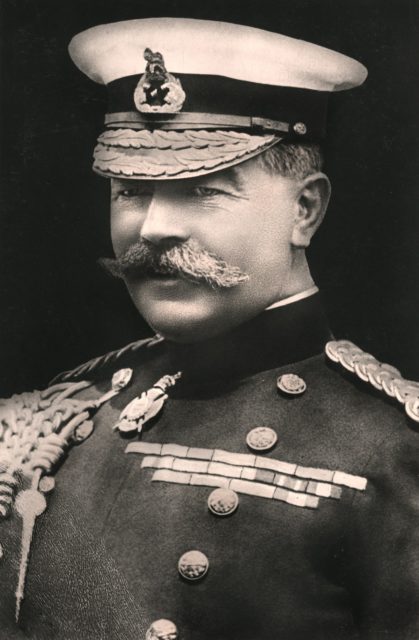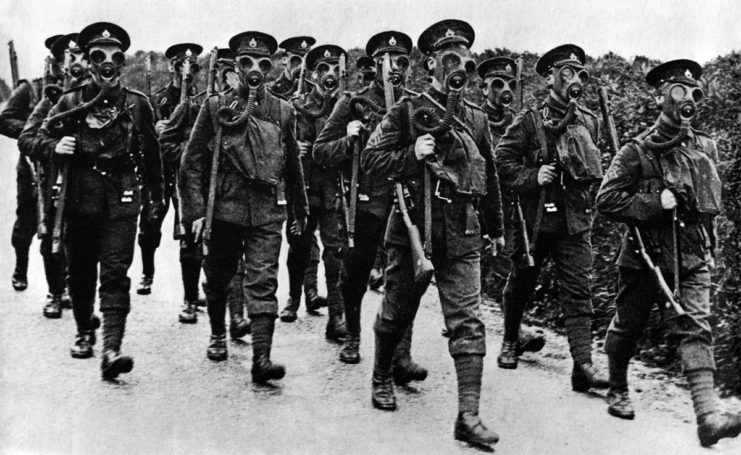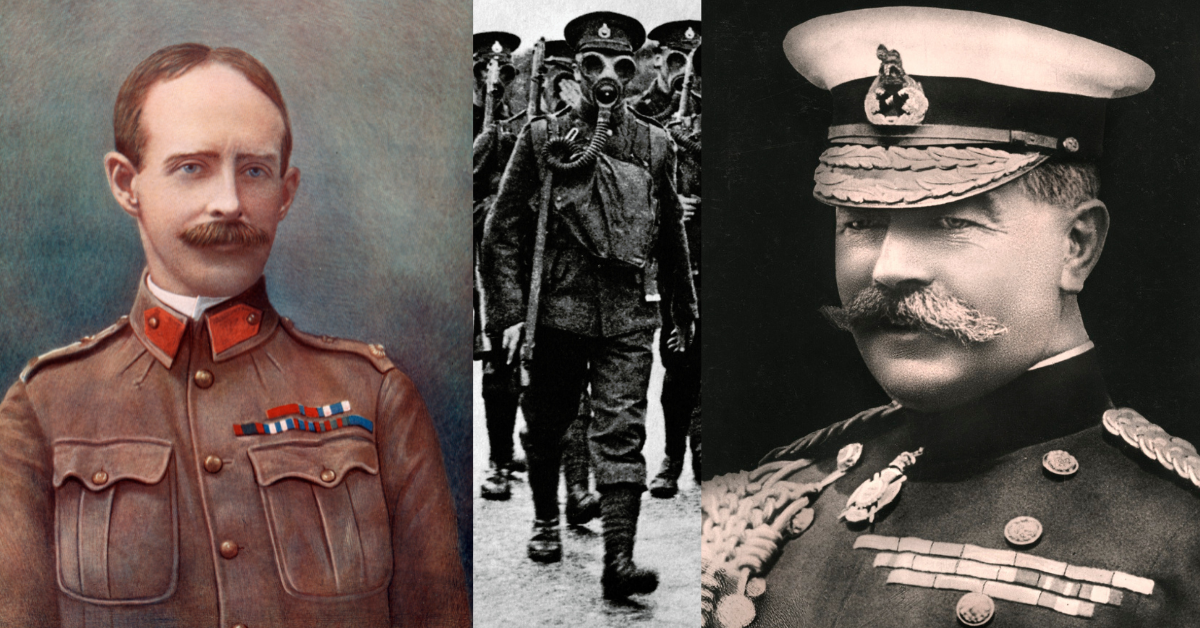When one imagines the British Empire, it’s hard not to think of a British soldier standing proud with a neatly trimmed mustache. This tradition was actually mandatory and lasted for nearly 60 years. In the event a soldier removed his facial accessory, the consequences could see him placed in prison. WWI was the final war for the mandatory mustache, which had declined in fashion alongside the British Empire’s decline in power.
The rise of the mustache

At its peak, the British Empire was absolutely enormous; history’s biggest, in fact, dwarfing even the likes of the Roman Empire. At this time, the British Empire spanned over a quarter of Earth’s total land area and a quarter of its population. With the British involved in so many different foreign lands and cultures, they were bound to pick up a few new traditions and trends.
The mustache was one such tradition, which actually came from a number of different cultures.
The British had a brush with the mustache in the late 1700s and early 1800s during the Napoleonic Wars. French troops wore styled mustaches, which were said to be “appurtenances of terror.”
This macho visual aesthetic rubbed off on a few British officers, who began wearing a mustache upon their stiff upper lip.
Similarly, Indian culture perceived a cleanly shaven face as being child-like and immature. A bearded face was associated with power, wisdom, strength, and masculinity. British troops operating in the area started adopting this look, which garnered much more respect from the Indian population.
By the 1830s the mustache had become popular amongst British servicemembers operating overseas, but back in England, the mood was much hairier. Or less hairy, rather.
The mood back home was that the British boys were “going native,” and efforts to stop the practice began. Lord Dalhousie, the Governor-General of India, was one such critic, stating that he “hates to see an English soldier made to look like a Frenchman.”
However, the desire for the mustache could not be stopped. The macho facial hair was given a boost in credibility in the 1850s when it was suggested that a mustache actually had practical benefits.
The opinion on mustaches had improved enough that by 1854, the Commander in Chief of the Bombay army of the East India Company made mustaches mandatory for his European troops.
Moustache-wearing was compounded even further after the Crimean War, which saw British troops grow mustaches to improve their resistance against the extremely cold temperatures. Upon their return, these grizzled, bearded soldiers cut an image of strength and courage. Queen Victoria wrote that the troops “were the picture of real fighting men……They all had their long beards and were heavily laden with a large knapsack.”
Even the public became enamored with the mustache, sporting them as one would sport clothing.
In 1860, just four years after the Crimean War ended, the mustache became compulsory in the British Army. From here, the mustache became synonymous with the British military and the British Empire as a whole. Figures like General Frederic Thesiger and Lord Kitchener featured the iconic facial hair, cementing it in history.
The mustache’s decline

The mustache remained compulsory in the British Army for the following 60 years, but it had fallen out of fashion with the general public by the late 1880s. Bad press about the unhygienic nature of the moustache and easier shaving methods meant that after decades of popularity, many dropped the mustache as fast as they had picked it up.
The biggest change in mustache regulations came in 1916, during the First World War.
A cared for and trimmed mustache had become a low priority for many troops during WWI, most of whom were too busy fighting away disease, trench foot, and enemy bullets. In addition, the desperate recruitment drive for new troops meant the frontlines now contained large numbers of young adult males who were simply unable to grow a mustache.
The weapons used during WWI also had an impact on the facial accessory. The constant threat of gas meant troops were now equipped with gas masks. However, facial hair could prevent a perfect seal from being made between the skin and the mask. For these reasons, in October 1916 it was decided that the mustache would no longer be compulsory.
Today, facial hair lives on in the British military, especially with those operating in the Middle East, an area that still associates a beard with masculinity and virility.
